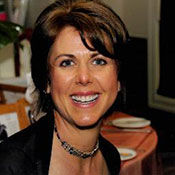My First Experience of Disability Discrimation

Discrimination, defined by the Canadian Human Rights commission, is an action or a decision that treats a person or a group negatively for reasons such as their race, age, or disability. This blog post is about the first experience of discrimination I faced following the birth of our son, with Down syndrome.
I was still in the delivery room and still stunned with the news of our newborn’s diagnosis of Down syndrome. Given his vulnerable, postpartum state of health, he was whisked to the Neonatal Intensive Care Unit (NICU). The nursing staff then began preparing my transfer from delivery room to maternity ward.
I was familiar with my surroundings: having given birth to our daughter in the same hospital, on the same ward, and with the same staff, two years previously. Hers was a difficult birth and she too was treated in NICU.
It was also a teaching hospital. So, not only was I familiar with the postpartum process and special needs care, I was fully expecting to be probed and prodded by student nurses, doctors, and technicians – especially the phlebotomy student technicians: those just learning how to draw blood from patients!
My husband had left sometime earlier. Where he went, I’m not too sure. All I recall is the overwhelming feeling of being alone. Ironically, while I just wanted to curl up in a ball and roll into a cave to hide, I intuitively knew that isolation from my ‘normal’ world was not going to help me overcome my intense feelings of shock and despair.
Understanding this need to stay connected, heightened my awareness of the lack of hospital personnel coming and going from my room. I quickly realized that I was only being attended to by one nurse – the head nurse – and all she was doing was coming into the room, asking me how I was doing, and then leaving. I found this behaviour rather odd because of my direct experience as a past patient and a community-based case manager.
Part of my job as case manager included discharge planning for patients from hospital to home. I had participated in several patient discharges in this particular hospital, and many in the same regional and provincial areas. I chose this hospital in which to deliver my babies because of the novel way they managed care: with a patient-centered philosophy.
Essentially, this model includes the active participation of the patient (and family) in the decision making about the care they receive. Back in the 1990s few hospitals were using this model of care.
So, I wondered. Where is everyone? The next time the head nurse came in, I asked. Her answer went something like this: under the circumstance, we thought it best to leave you be.
While I understood the phrasing “under the circumstance” was code for “you just gave birth to a disabled baby,” I was uncertain as to why I was being treated differently compared to how I knew they typically functioned. So I inquired further.
Who participated in the decision-making, I recall asking. The nurse didn’t provide a response.
So, my second inquiry was a little more direct. Was my physician consulted? Did social work get involved? Was there an on-call psychologist or psychiatrist who weighed in? Still no response.
Finally, I asked why I wasn’t being attended to by the regular nursing staff and student health care professionals, considering it was a teaching hospital. This time she answered.
“Do you want to be?”
“Yes!” I stated emphatically (the fact that I would welcome this kind of annoying treatment is a testament to my intense need to stay connected to anything that gave me a sense of normal).
The nurse then left and shortly thereafter the student entourage was upon me! While I didn’t necessarily want to experience the constant barrage and discomfort of being treated by inexperienced hands – the worst of which was from the blood-sucking student techs – I knew, on an emotional level, it would be better for me than being treated differently. At the very least, I needed to be included in the decision making.
I have come to realize that the manner in which I was initially treated by the nursing staff in that maternity ward constituted discrimination. Unbeknownst to me at that time, by asking the kinds of questions that I did, and insisting that I be included, I was advocating for myself.
Unfortunately, this situation would mark the first of many events of discrimination that we would face, and still do, related to our son’s participation in community life. Over the years, I found myself becoming a strong advocate for our son and our family. I will draw on these experiences, and how I learned the art of advocacy, in upcoming blogs at Disability Matters. Please join me.


Comments (0)
This thread has been closed from taking new comments.
Related Posts
This Was Meant To Be
So there I was, lying inclined on a birthing table in a hospital delivery room. I was baring down with…
Read moreAnything But Sorry
“Anything but sorry: what to say when a baby is born with Down syndrome” is a recent campaign launched…
Read more